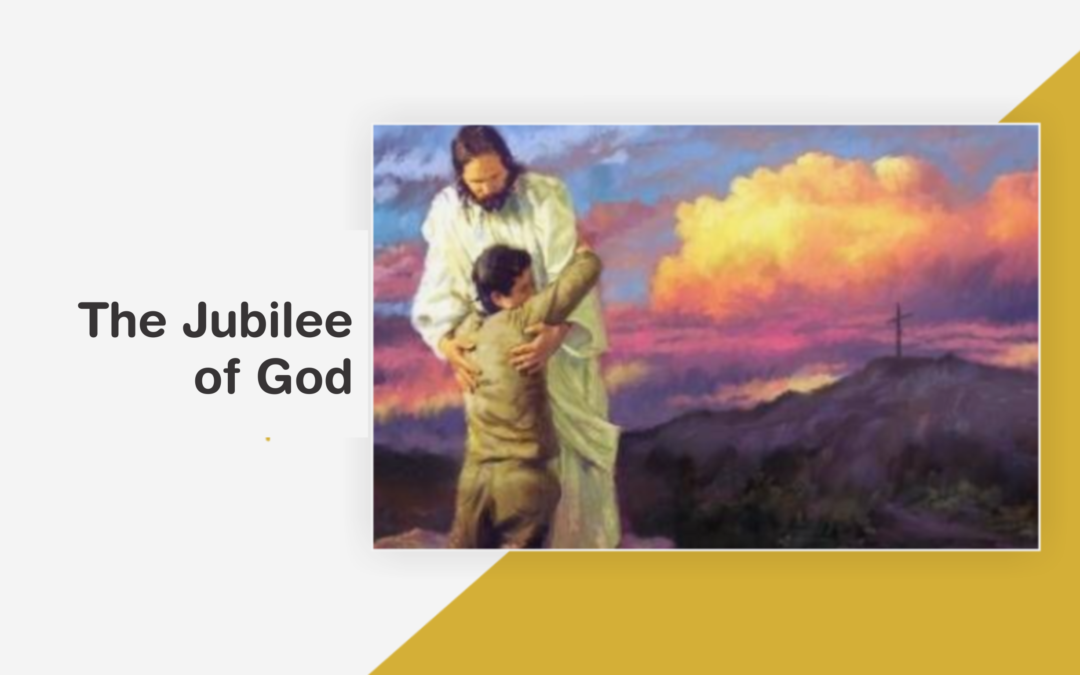Anchor Scripture: Luke 4:17-21; Leviticus 26
Jesus declares in Luke 4:17-21, that his mandate on earth was to fulfill the Old Testament jubilee law code. On this occasion, Jesus stood in the temple and read from the scroll the jubilee ordinance as written in the book of Isaiah: to deliver the captives, to set at liberty the bruised, and to proclaim the acceptable year of the Lord. “This day is this scripture fulfilled in your ears,” he emphasized in verse 21, signifying that the year of jubilee was at hand. It shows that all along, the preaching of the gospel in the towns of Galilee and Capernaum, in the city of Jerusalem, and in the surrounding regions was anticipatory – to usher in the year of jubilee! The fiftieth year as specified in Leviticus 25 had circled back again. Amazingly, it coincided with the time of Jesus’ ministry in Judaea.
Jubilee as described above is an exit strategy of God for unresolved debts. Indebtedness that becomes insolvent receives divine pardon via the jubilee provision. It requires that after so long amnesty is granted to impoverished persons when unable to pay. Mercy is invoked for the poor to give them a new start, often after enduring with rigor the penalty of enslavement to a creditor. Indeed, a borrower is a slave to the lender (Proverbs 22:7). But because the earth is the Lord’s and the fulness thereof (Psalm 24:1), all lenders are but stewards of earth resources (Lev. 25:23). Out of the goodness of God, he mandates his stewards to tender mercy for justice. So that if the debtor lack ability to reclaim a lost property, in the jubilee the rich must let go every slave. And because God has respect to his own laws and principles, in the dispensation of the time, he applies the jubilee law code in the person of his Son to free sinners from the bondage of sin. The jubilee of God, i.e., jubilee as practiced by God was, thus, enacted.
Now, the law allowed for the kinsman redeemer to be able to bail the cat when a man is unable to repay a debt or redeem a landed property. For this reason, the preaching of the gospel of salvation offers sinner the opportunity to be set free by appropriating the grace of the cross of Jesus Christ. If, however, the kinsman’s benevolence could not be appropriated, meaning the debtor could not pay, the property remains with the creditors until the year of jubilee (Lev. 25:28). “For unto us was the gospel preached, as well as unto them: but the word preached did not profit them, not being mixed with faith in them that heard it” (Heb. 4:2).
Leading up to the first judgement of Revelation chapter 20, we have discussed the phased persecution of sin (Lev. 26). It will apply solely in the case of unrepentant souls that could not appropriate the grace of the cross of Jesus Christ. Notice also, that the stipulations of the jubilee law code (Lev. 25), which is executed following the 49th sabbath year, is repetitive. Jesus clarified this when he was asked how many times we might forgive. His answer, paraphrased, said, as long as there is the asking (Matt. 18:21, 22). That is, 70×7, which is 7x7x10 or 49×10 times. Going by the response that Jesus gave, 10 circles of jubilee should account for the phased treatment of sin. This is why there is the first death, second death, and so on and so forth. But the last enemy that must be destroyed is death itself (1 Cor. 15:26). Death must be vanquished. Thus, death and not souls is to be annihilated. Every soul must eventually be freed from the bondage of sin via the jubilee amnesty!
Have questions or comments
Please use the form to the side

